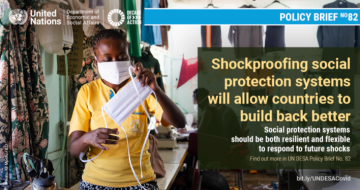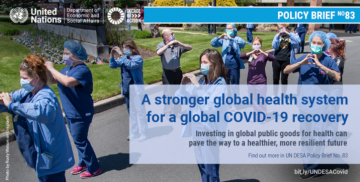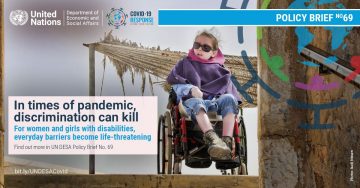Publications
Displaying 1 - 10 of 18
UN General Assembly Reports on Social Development |
Policy Briefs |
Risks of implementing more shock responsive social protection include overwhelming demand, lack of coordination, poor targeting and negative public perception. These can be partially offset by ensuring universal access to programmes. A country’s available fiscal space and level of debt distress are key contextual factors that determine the feasibility of more shock-responsive social protection.
Policy Briefs |
Amidst deliberations on priority areas for rebuilding, much attention has been paid to the need to strengthen domestic health care, and such proposals will certainly be high on the agenda for many Governments. The crisis, however, has also shone a spotlight on the shortcomings of the global health system.
Policy Briefs |
Persons with disabilities—both visible and invisible—face obstacles and discrimination in accessing health care and other essential services, social protection and income security, mental health services, and communication technologies. In addition, women and girls with disabilities are subject to intersecting forms of discrimination related to sexual and reproductive health, gender-based violence, legal protection, unpaid care and domestic work. Women and girls with disabilities who are migrants, refugees, or from ethnic minorities endure even more hardships and unequal treatment. Gender, disability and structural inequalities, which characterized societies before the crisis, are being…
UN General Assembly Reports on Social Development |
UN General Assembly Reports on Social Development |
UN ECOSOC Reports on Social Development |
UN ECOSOC Reports on Social Development |
UN ECOSOC Reports on Social Development |
 Welcome to the United Nations
Welcome to the United Nations


